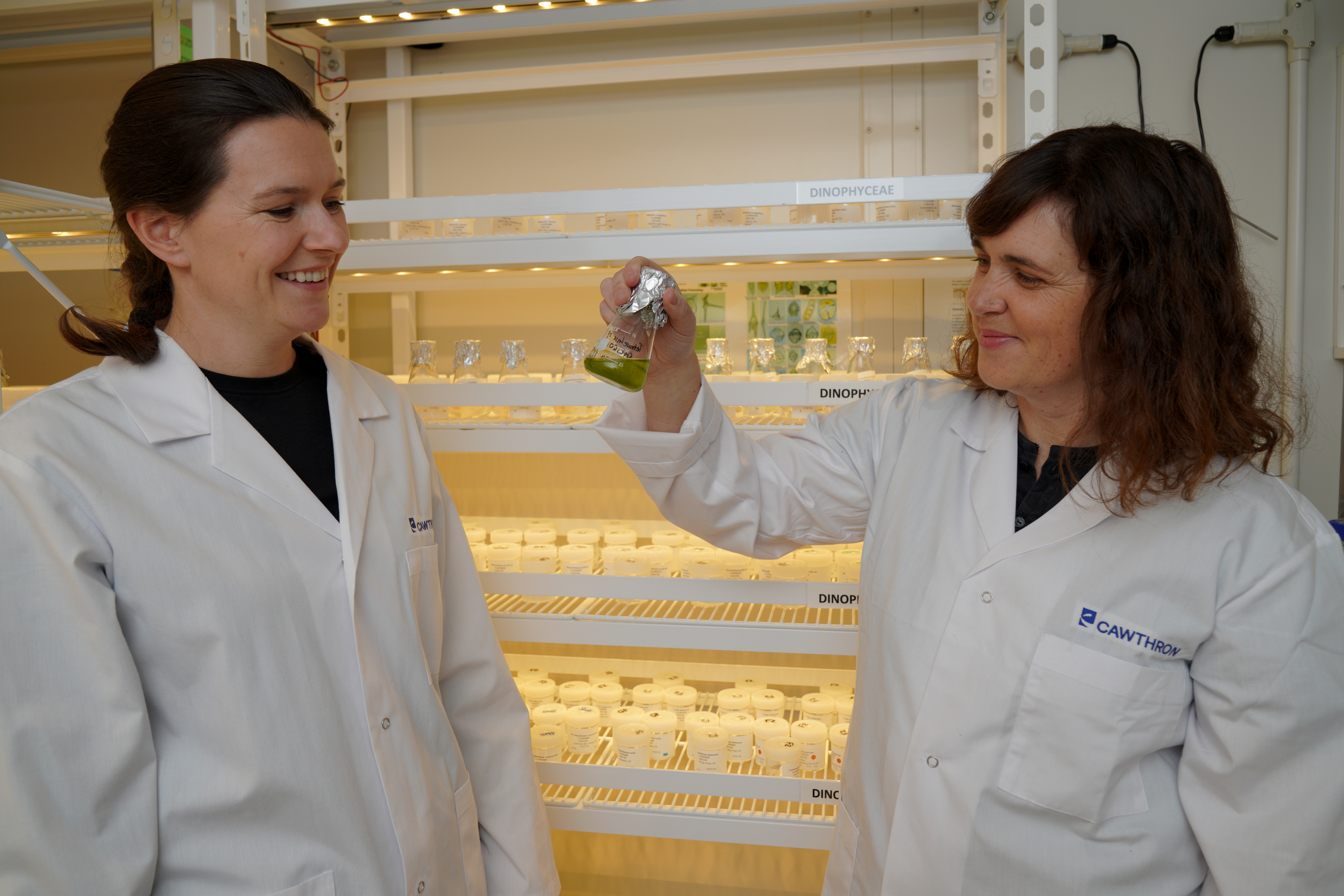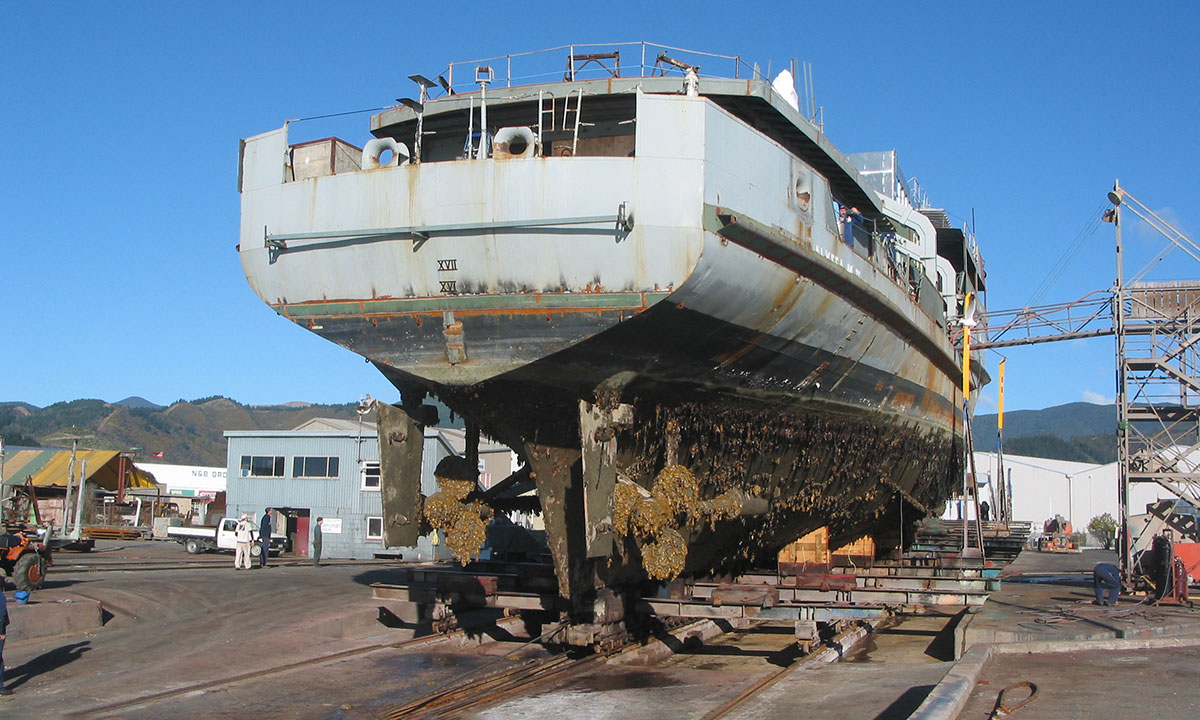Cawthron celebrates four successful proposals in 2024 science funding round
13 September 2024
Cawthron Institute is celebrating the announcement that four of its bids for the 2024 MBIE Endeavour Fund round have been successful. Two Research Programme bids and two Smart Ideas proposals were awarded, focused on understanding how microalgal communities respond to climate change, developing tools to effectively respond to marine biosecurity threats, developing next-generation fertilisers from cyanobacteria, and optimising salmon nutrition.
Cawthron Institute’s Chief Executive Volker Kuntzsch says these research programmes are ‘very much focused on applied science that will have an immediate, real-world impact.’
“I’m delighted that MBIE and the panel of assessors have recognised the value that Cawthron Institute’s science can contribute to Aotearoa New Zealand’s environment, economy and society.”
Effective eradication: strategies, tactics, and technologies for successful marine invasion management
The first successful research programme ‘Effective eradication: strategies, tactics, and technologies for successful marine invasion management’ will tackle the critical threat posed by marine invasive species to our coastal ecosystems and maritime industries. The Programme will be co-led by Cawthron’s Dr Ian Davidson and Dr Patrick Cahill and will establish a national strategy for marine incursion response, including fit-for-purpose decision support and tactical response tools and technologies that increase the efficacy of our response to marine invasive pests.
Dr Davidson said invasive pests are a big threat to Aotearoa New Zealand’s oceans and coastal areas as they disrupt the ecosystems that we value greatly and depend on for food, industry, and recreation.
“A lot of effort and resource goes into preventing and responding to invasive pests by organisations including central government, councils, iwi, hāpū and whānau kaitiaki, boat owners, environmental groups and researchers. But we need to be proactive about deploying modern technologies and tools for pests in the sea. We will work with these people to develop new approaches that they can be confident will deliver the desired outcomes.”
From Reactive to Resilient: Effectively managing our changing microalgal communities
The second successful research programme will enhance our understanding of how microalgal communities function and interact within marine ecosystems, so that we can predict and respond to harmful algal blooms and take action to boost marine ecosystem resilience.
The Programme will be co-led by Dr Kirsty Smith and Dr Anne Rolton Vignier, and responds to the pressures placed on microalgal communities, the base of marine food webs, by warming oceans and the degradation of coastal ecosystems through things like land-use intensification, nutrient loading, pollution and sedimentation.
Dr Anne Vignier, who outlined these challenges in a recent article for The Conversation, said microalgal communities play a crucial role in marine ecosystem functioning and the blue economy.
“Harmful algal blooms cause closures of shellfish harvesting and impact on the health of marine species. These blooms affect communities, the aquaculture industry and our marine ecosystems, but we’re also concerned about a potential loss of beneficial microalgae, which form the foundation of marine food webs,” Vignier said.
“We really need to understand what factors are shaping these evolving microalgal dynamics to enable effective management going forward.”
This programme will enable Aotearoa to predict and manage these changing microalgal communities to protect marine ecosystems, safeguard public health and support the sustainable development of the blue economy.
Cawthron Institute’s two successful Smart Ideas proposals:
‘Boosting nitrogen-fixation capabilities in cyanobacteria as a pathway to climate-positive nitrogen fertiliser ‘ – A project led by Dr Jonathan Puddick to significantly improve the nitrogen-fixation and storage capacity of cyanobacteria, providing a pathway to industrial-scale production of nitrogen fertiliser using cyanobacteria. The goal of this project is to enable the world to transition away from synthetic nitrogen fertiliser which currently relies on fossil fuels for its production. Some cyanobacteria can take-up atmospheric nitrogen (N2) and convert it into usable forms such as ammonia (NH3) and nitrate (NO3). Because cyanobacteria consume CO2 through photosynthesis, this could provide a climate-positive and sustainable nitrogen source for agricultural and horticultural needs. Other potential benefits include less nitrogen run-off into waterways and improved soil health with increased resilience to extreme rain events and drought.
‘Nutritional geometry approach to revolutionise diets for sustainable aquaculture growth’ – A project led by Dr Matt Miller that aims to optimise farmed salmon nutrition to improve metabolism and health. This will improve the productivity of farming by increasing fillet yield and reducing waste, which will support the growth of the New Zealand salmon farming industry, currently valued at $320M. Our approach integrates concepts from ecology, evolutionary biology, and nutritional science using ‘nutritional geometry’ modelling to balance proteins, fats, and carbohydrates in salmon diets. The goal is to meet the specific needs and appetites of salmon through optimised nutrition. We are working with leading global experts in nutritional ecology, as well as fish nutritionists, fish health and diet design researchers from New Zealand and Australia, to comprehensively understand and define the dietary requirements of our Chinook salmon.

Dr Anne Vignier and Dr Kirsty Smith handle a microalgae sample stored in Cawthron’s Culture Collection of Microalgae.
Biofouling on boats is a key biosecurity threat – Cawthron researchers will be working on effective erradication strategies for marine invasion management to prevent the spread of unwanted marine organisms.
Volker Kuntzsch
Cawthron Institute Chief Executive

